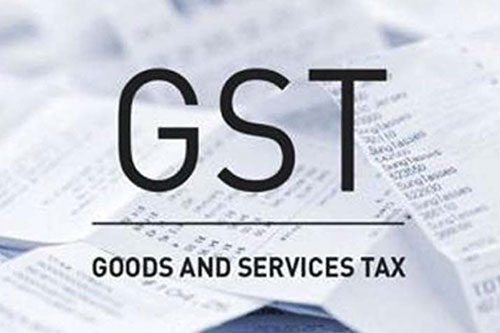A delay in the rollout of the GST could be a blessing in disguise
Dated 20th December, 2016
 The storm over demonetisation and lack of consensus on the “dual control” issue has impacted the GST bandwagon, which was running quite smoothly till now. The recent GST council meetings did not yield much result and one hopes that the meeting scheduled on December 22nd and 23rd will take things forward. However, it means that the earliest the GST laws can be passed by Parliament would be the budget session starting end of January 2017. This effectively means that there is a possibility of the GST getting delayed, anywhere between three to five months.
The storm over demonetisation and lack of consensus on the “dual control” issue has impacted the GST bandwagon, which was running quite smoothly till now. The recent GST council meetings did not yield much result and one hopes that the meeting scheduled on December 22nd and 23rd will take things forward. However, it means that the earliest the GST laws can be passed by Parliament would be the budget session starting end of January 2017. This effectively means that there is a possibility of the GST getting delayed, anywhere between three to five months.
To me, it is good news, both for the government as well as industry.
The industry was always running against time to implement the GST, slated to come into effect from April 1, 2017.
Neither the laws nor the schedule of the GST rates have been finalised as yet. This poses several challenges for businesses, the most critical being IT systems readiness, where changes can only start once the laws are finalised. This is why other countries gave at least 12 to 18 months for the industry to prepare. Further, the industry needs to look at the vendor ecosystem as well and ensure that they are technology enabled for doing the GST compliances, which is critical for claiming the GST credits. With a bit of delay in the GST implementation, industry will be better geared up for transitioning their systems and processes.
Preparing the business plans in a post-GST era also requires the final GST rates. While the overall rate structure has been finalised (0, 5, 12, 18 and 28%), the schedule of rates for various commodities and services are still not known. In absence of this, industry is not in position to take critical decisions such as budgeting, pricing and demand forecasting for the next year. Things are further complicated in view of the proposed “anti-profiteering clause” in the revised GST laws, which mandates that any benefit arising out of the GST would need to be passed on to the customers. This benefit cannot be computed unless the rates are known and the law is finalised.
The GST rollout would also entail substantial changes in supply chain models, particularly for consumer products such as FMCG, electronics, durables, etc. This in turn means taking several critical decisions such as import vs domestic manufacturing, make vs buy, multiple stock points vs fewer warehouses and so on. These decisions are long-term in nature and have wide ramifications. Many of these are contingent upon the finer aspects of law, such as treatment of current excise/VAT holidays, tax arbitrage available in case of domestic manufacturing vis-à-vis imports (eg, mobile handsets), etc. Once these aspects are clarified in the final laws, industry would expect at least three to four months to realign their business models.
Last but the not the least, the last quarter of a financial year is always a busy time for the industry with sales push in the distribution chain, accounting closure, etc. The GST from April 1 would have meant an additional challenge in the last quarter and would have had a larger business impact.
While the delay gives us much needed time, it is important that we are not complacent as the industry has realised that complexities involved in this transition are much more than what was envisaged earlier. Even a simple transaction of receiving an advance or a sales cancellation could translate into an implementation nightmare in the new regime. International experience tells us that even a transition period of one to two years is not enough for a GST transition and hence industry needs to make most of this additional time.
From a government’s perspective, there is additional time to work on the nuts and bolts of the laws. It also gives them an opportunity to assess the impact on diverse sectors and issue detailed guidelines for implementation. The government may also like to use this opportunity to have a more effective public outreach programme so that benefits of the GST are well appreciated and do not lead to chaos initially.
It might be worthwhile for the government to also study the “after-effects” of demonetisation and take necessary measures over the next few months, including in the upcoming budget scheduled for February 1, 2017.
So, a delay in the GST rollout may not be bad, after all.





